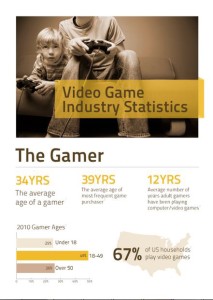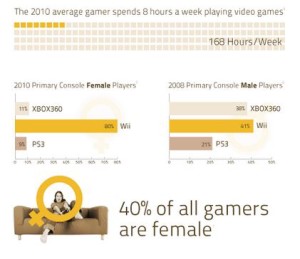 Have you ever been in a group when the conversation turned to religious abuse, or the dark side of the church? Inwardly you stomach starts to churn, and your hands begin to sweat.
Have you ever been in a group when the conversation turned to religious abuse, or the dark side of the church? Inwardly you stomach starts to churn, and your hands begin to sweat.
The church definitely has a long list of dark moments including: the Crusades, witch trials, slavery, domestic abuse, and the concept of “Manifest Destiny.” Church leaders sometimes defended the atrocities of their times using bias interpretations of the Bible, while at other times they were silent.
Rather than covering up these past failures, the church should be open about confessing its faults, and be authentic about how it is an institution being led into change by the Holy Spirit to redeem the world and further God’s Kingdom.
If church history becomes a discussion in the classroom, or in the dorm, here are a few thoughts to help you discuss the Dark Side of Church History.
1. Be Honest about the past.
Acknowledge the church didn’t stand on the right side. Early church leaders claimed that the earth was in the center of the universe, and persecuted those who supported Copernicus’ theory. Galileo was placed under house arrest for his writings.

Memorial in Salem Massachusetts
The church and its theology has been greatly affected throughout history by race, power, and politics. Decisions on how the Bible should be interpreted were highly influenced by more than just the Holy Spirit, but were often taken over by sinful human will. All of us approach scripture with a biased perception and often interpret the Bible to support our views.
The church and its theology has been greatly affected throughout history by race, power, ethnicity. Studying church history showed me how issues of race shaped aspects of our theology. All of us approach scripture with a biased perception and often interpret the Bible to support our views.
Finding fault in the church is not the same as finding fault with God. The church becomes spotless bride in heaven through the blood of Jesus. Right now, the church has more than its share of faults and issues.
Acknowledge that sometimes the church didn’t agree with each issue. During Hitler’s rise to power, the church split over their support for the dictator. Martin Niemöller and Dietrich Bonhoeffer were two leaders of the church in Germany who opposed him, and put their lives in jeopardy to stand for what they believed. Sometimes church leaders changed their positions as the culture and climate changed.
In the United States, churches in the south often supported slavery, while many other Christians fought for abolition. This division was often based on their geographical location with southern churches using the Bible to support the concept of slavery.
While the past is dark, we…
2. Don’t speak for the Past.
As a Christian, you don’t have to speak for the past. You are not the defense attorney for Christianity in your Introduction to Philosophy class. Our limited perspective doesn’t allow us too. You were not there, and you will not be held accountable for the failures of others.
However, you can mourn the past, and be sorrowful over what has occurred. Discover ways to identify with the past, and understand the issues. (For example, I suggest watching 12 Years a Slave in order to address the difficulties of slavery.) Identifying with those wronged by the church will help us develop empathy, and enable us to better speak and direct them to Christ.
3. Learn from the Past.
As a child, I remember the day when I pick a fight with my neighbor Tommy who was older and weighed fifty pounds more than me. Within a few minutes, I was pinned under that weight, and helpless. It was the last day, I fought with Tommy.
When examining the past of the church, Paul states that we should remember to learn from past examples, and remember that all of us are susceptible to failure. I Corinthians 10:11 says, “Now these things happened to them as an example, and they were written for our instruction, upon whom the ends of the ages have come. Therefore let him who thinks he stands take heed that he does not fall.…”
God is the judge, and so let Him judge the past actions of others. However, we can learn from them, and examine our own beliefs and actions.
Remember God is redeeming the church and our world. We are called to follow God and work to further His Kingdom. Your generation is bound to make mistakes, just as those before you. There is desperate need for humility as the church approaches the Word, while discerning how to respond to social issues.
The church is not perfect, it is only spotless by the blood of Jesus.
 I found this article well-written, and true as I work regularly with those who were raised in the church, and are now married.
I found this article well-written, and true as I work regularly with those who were raised in the church, and are now married.





 As children grow up, it is important to acknowledge that the historical church has not always stood on the right side of issues. Due to human weaknesses, the church isn’t perfect; and therefore has a few skeletons in her closet. For example, early church leaders claimed that the earth was in the center of the universe, and persecuted those who supported Copernicus’ theory of a sun-centered solar system. Galileo, a scientist was arrested and placed under house arrest for supporting Copernicus’ theory.
As children grow up, it is important to acknowledge that the historical church has not always stood on the right side of issues. Due to human weaknesses, the church isn’t perfect; and therefore has a few skeletons in her closet. For example, early church leaders claimed that the earth was in the center of the universe, and persecuted those who supported Copernicus’ theory of a sun-centered solar system. Galileo, a scientist was arrested and placed under house arrest for supporting Copernicus’ theory. As a Christian, you don’t have to speak for the past. Your child needs to understand that they don’t need to be the defense attorney for Christianity in their Introduction to Philosophy class. Our limited perspective doesn’t allow us too. You were not there, and you will not be held accountable for the failures of others.
As a Christian, you don’t have to speak for the past. Your child needs to understand that they don’t need to be the defense attorney for Christianity in their Introduction to Philosophy class. Our limited perspective doesn’t allow us too. You were not there, and you will not be held accountable for the failures of others.



 My two year old comes to me on a regular basis and says, “ungry.” Tobi is still working on his H’s. So we head to the kitchen, open the cupboard, and get out a snack for him. But that is not enough, I also help him into his chair at the table.
My two year old comes to me on a regular basis and says, “ungry.” Tobi is still working on his H’s. So we head to the kitchen, open the cupboard, and get out a snack for him. But that is not enough, I also help him into his chair at the table. Our current obsession with Big Churches and Big Preachers is built upon this concept that church is the place we are fed- the great spiritual feeding trough.
Our current obsession with Big Churches and Big Preachers is built upon this concept that church is the place we are fed- the great spiritual feeding trough. 


